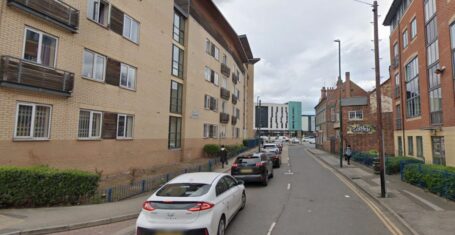
Nottingham has one of the poorest mental health services, according to its students
Demand for counselling is on the rise
The University of Nottingham has come 16th out of 30 universities in The Tab’s inaugural 2016 Mental Health Rankings.
Nottingham’s ranking is partly a result of poor student satisfaction – just 35 per cent of students who told the university that they had a mental health problem said they had found it had helped them, the fifth worst in the UK. However, the university’s score was pulled up by average financial support for the counselling service, and good outreach. The university spends nearly £24 per student on the counselling service, practically unchanged from five years ago.
The university got one of the highest outreach scores, eighth in the UK, meaning that people feel comfortable telling the university they have a mental health problem, even if they aren’t necessarily happy with how it treats them.
[infogram id=”c647d39d-6af9-44fa-872c-0a732f3e7bf4″ prefix=”w7l” format=”interactive” title=””]
The Tab’s 2016 Mental Health Rankings are the first ever attempt to judge universities on how they treat mental health, with the aim to improve standards nationally, reward good universities, and highlight underperforming universities. Some 30 of the best universities in the UK are included.
Some 73 per cent of students did not apply for extenuating circumstances, despite being ill. It’s a pattern reflected in several other top academic universities: over 86 per cent of Oxford students did the same, while the national average was 74 per cent.
[infogram id=”d3d3b776-3512-44de-afba-31171e4c737d” prefix=”9WH” format=”interactive” title=””]
The new rankings are the result of increased media coverage over student’s mental health. Until now, there had been no detailed examinations of how universities across Britain are coping with increasing numbers of students struggling with mental health issues.
Demand for mental health services has shot up at a time when there are less resources to go around. The NHS is facing front-line cuts that affect students particularly – GP practices at universities get less money than other general practices. The lack of trained psychiatrists across Britain, plus the “cascade” of cuts down the NHS, mean that universities have been pushed into the front-line.
[infogram id=”58f0d523-2167-4876-ae8e-b084ccf6d572″ prefix=”8e1″ format=”interactive” title=”Current state of affairs”]
According to Jeremy Christey, who works in the Sussex University Counselling Service as well as running StudentAgainstDepression.org, NHS cuts have had a staggered impact on mental health care:
“The NHS threshold has gone up, which means that it’s harder to get access to treatment in all parts of mental health services. There’s less money for inpatient services, so more complex people are in the care of crisis services, which means that more people go from crisis to lower-tier services. There’s a cascade effect that impacts students, and as NHS trusts know that students have a university counselling service to go to, people can often be pointed back in our direction.”
At Nottingham, the support services have previously been criticised. Jenny went to the University of Nottingham’s counselling service, but felt she was being passed around because the service was overwhelmed: “It was clear they were stretched and tried to get me going to a council-run CBT, which wasn’t ideal as I didn’t feel I was yet at that stage.”
Despite this, the counselling service does work most of the time. Jenny herself said: “I had a great experience with the on-campus GP and counselling service.” But not every story ends so happily – Hayley found Nottingham’s system next to useless, saying: “To me, the mental health service they have isn’t one.”
A spokesman for The University of Nottingham said: “The University places a high priority on the health and wellbeing of its students and has demonstrated this through its provision of high quality and accessible professional services such as counselling, mental health support and health promotion.
“The University has strong links with the NHS to ensure students receive appropriate access to local services. It also works in partnership with the University of Nottingham Students’ Union on the delivery of sector-leading campaigns such as HealthyU.”
Names have been changed, and quotes have been condensed and edited for clarity.
If you are struggling with mental health, please reach out. Organisations like the Samaritans are here to help.









































